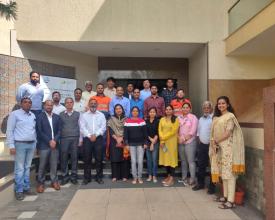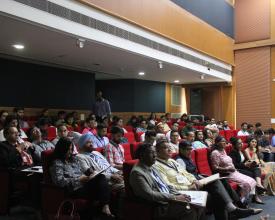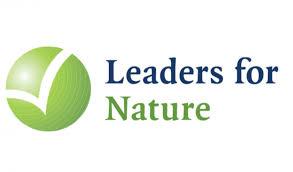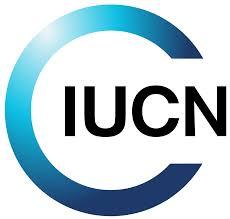
Promoting Corporate's Leadership in Addressing Challenges related to Natural Capital and Biodiversity Conservation through Knowledge Sharing and Capacity Building
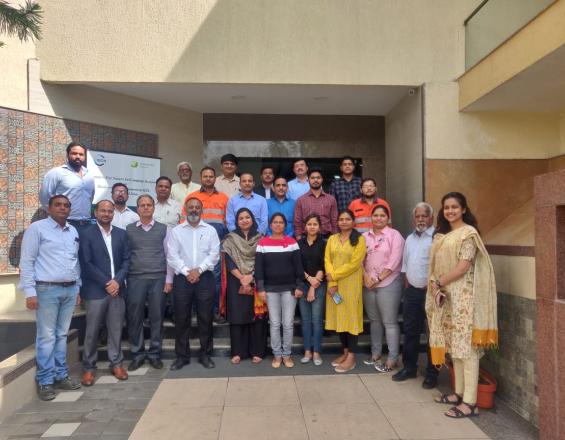
Leaders for Nature (LfN) is IUCN India’s business and biodiversity engagement network that facilitates companies in transitioning towards a green Indian economy, by incorporating natural capital in their core business. IUCN India's LfN sensitizes companies about the true value of nature and supports them with technical expertise to incorporate issues related to natural capital into their strategic decisions. The overall aim is to create corporate leadership for biodiversity and natural capital conservation. This platform offers its member companies two in-company sessions focusing on training and capacity building along with exposure visits and conservation dialogues in a year to promote sharing of best practices. The extensive network of IUCN as a union provides LfN membership access to experts and expertise from around the world.
Context
Challenges addressed
- Lack of capacity of biodiversity issues in businesses as often staff responsible for environmental and biodiversity issues (Health, Safety & Environment unit) are not from ecological background and therefore, have challenges in addressing impacts on biodiversity and ecosystem services.
- Lack of easy access to global best practices and updated solutions related to natural capital and biodiversity conservation. In addition, companies also look for customized knowledge and an opportunity for two-way communication which leads to efficient execution of activities.
- The need for incorporating principles of natural capital into company’s operations and building synergies is necessary for attaining SDGs as well as aligning individual with national and international goals, thereby, setting example at industry/sector level.
- Lack of peer-to-peer learning platforms to ensure building and sharing of knowledge base through best practices, case studies and field visits.
Location
Process
Summary of the process
Enabling a transformational change in high impact companies and ensuring that the private sector contributes to Sustainable Development Goals, requires adequate knowledge on biodiversity values and efficient use of resources. Through IUCN India's LfN program, it is ensured that Corporate's commitment is matched with globally accepted tools and knowledge products. Thereby, empowering corporates to use the knowledge in the right direction to incorporate natural capital into their business.
Building Blocks
Commitment towards Natural Capital
Under IUCN India's Leaders for Nature program, it is important to ensure that adequate due diligence is conducted for all potential members; in order to understand the corporate’s perspective and commitment towards natural capital.
Enabling factors
- A due-dilligence process of Risk Opportunity Matrix (RoM) is carried out via information available on the internet, and sustainability and audit reports of corporates. This enables IUCN to evaluate opportunities and risks in partnering with companies.
- The level of commitment from senior management of the companies on issues related to biodiversity conservation and natural capital, among others, is reflected via resource allocation (both human and financial).
Lesson learned
Commitment from senior management ensures that policy related to natural capital is incorporated in the business operations and is included in the vision of the company. Lack of such leadership and vision would lead to reduced capacities of personal and willingness to address these issues.
Customized Capacity Building Program
Under IUCN India's LfN program, a corporate is provided with customized and targeted sessions for enhanced learning on globally accepted tools and research. This helps corporates in building their capacities and catalyze organization's transition into sustainable business practices.
Enabling factors
- Understanding the audience, company's operations and agreeing with the senior management on the customized capacity building program ensures that key personnel in their operations have an enhanced understanding and appreciation for incorporating natural capital into business operations;
- In addition to company specific sessions, the annual event (masterclass) provides peer-to-peer learning platform from the industry's best practices to the wider communities;
Lesson learned
- There is a need to design, develop and implement sector specific tools and modules to be able to meet expectation of the companies.
- The nature of the capacity building sessions should enable the staff to set realistic short-term and long-term goals.
- Peer-to-peer learning not just from within the region but from global experts should be augmented.
Impacts
IUCN India's LfN through training and capacity building of its member corporates, has widened their understanding and appreciation for nature and often led to larger engagements with IUCN that has resulted in significant changes and commitments towards nature. Some examples of these are mentioned below:
- Tata Steel adopted a company-level Biodiversity Policy in April 2016. Based on this policy the company is now implementing its Biodiversity Management Policy in its mines with the support of IUCN;
- Aditya Birla Group (ABG) launched its group-wide Biodiversity Policy in April 2018. It is the first global conglomerate to adopt a corporate level Biodiversity Policy;
- UltraTech Cements Ltd, an ABG company, launched its company-wide Biodiversity Policy in April 2018.
- Tata Power Ltd. has developed and adapted its Biodiversity Guidance document for the business and operations to integrate globally acceptable biodiversity standards (i.e. International Finance Corporation Performance Standards and ADB safeguards) into its operations.
Beneficiaries
Corporate members (13) from high impact sectors are supported with customised knowledge and access to IUCN’s pool of resources, global expertise and learning platforms.
IUCN members (40) share their work and expertise through this platform.
Sustainable Development Goals
Story
Private sector’s role in biodiversity management and sustainable use of natural resources in its operations are of utmost importance and critical to their transition towards sustainable development. In the numerous interactions with corporates since the inception of IUCN India's Leaders for Nature (LfN), it has been recognised that corporates lack the detailed understanding of tangible values of biodiversity and its relevance to their operations. Even though corporates have been promoting and practicing conservation activities often related to water quality and soil fertility around their project sites, it is not accompanied with quantifiable information to document the impact. This highlights that the need for rigorous scientific knowledge and the use of globally acceptable tools to document and evaluate the impacts of their efforts is indispensable.
One interesting example from the IUCN India's LfN platform is from Aditya Birla Group (ABG), an Indian multinational conglomerate. The group has interests in viscose staple fibre, metals, cement, viscose filament yarn, branded apparel, carbon black, chemicals, fertilisers, insulators, financial services, and telecom. Through IUCN India’s programme, customised knowledge and tools was delivered to ABG via in-company sessions to transcend the multi sector business operations onto the path of sustainability and incorporating natural capital into business operations.
Through multiple interactions, in-company session and masterclasses, which not only helped in building trust but also to understand the knowledge gap, IUCN India supported ABG to adapt and finalise their Biodiversity Policy and Technical Standards for the entire group. The success often depends on the level of response, interest and commitment shown by the organization during the whole engagement.
IUCN India's LfN provides a scope for two-way communication which makes the program effective and efficient. ABG’s commitment and willingness to change was critical to the process.
The LfN platform leveraged the expertise of IUCN’s Commission members and member organizations to provide globally recognised expertise and solutions for the organizations specific operations. These sessions are in line with the corporates’ sustainability targets.
